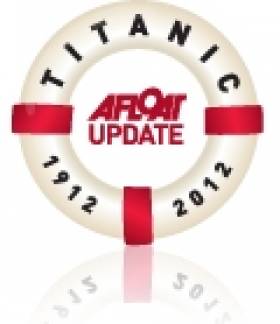Displaying items by tag: walking tours
#HarbourTours – Following the recent visit of President Michael D Higgins to launch the Dun Laoghaire Bicentenary Celebrations, guided walking tours of the harbour continue to mid-June.
The free guided walking tours will delve into the magnificent engineering of the historic harbour that began construction 200 years ago in 1817. Four years later the harbour works were inspected by King George IV and following the visit the town was renamed Kingstown in his honour.
In 1823 along the harbour waterfront, the King George IV Obelisk monument was erected and this is where President Higgins on Wednesday last had attended the commemorative ceremony.
The talks will also explain about the earlier harbour and how the present harbour was built using granite from Dalkey.
Also the tour highlights some of the lesser-known features of this wonderful harbour, that was originally planned as a 'Port of Refuge' with just a single pier, the East Pier. It was decided however to add a second pier, that been the West Pier. In total the harbour took 25 years to construct with completion finally taking place in 1842.
Tours are held every Tuesday and Thursday until 15 June and are wheelchair accessible.
Meeting point: Bridge over the Dun Laoghaire DART Line at Crofton Road.
Time: 11.00am (1 tour per day)
Duration: 1 hour
Max Capacity: 30 people
The talks are part of the Spring into Heritage (28 April-18 June) programme organised by Dun Laoghaire-Rathdown County Council. For further website information including other events (click to download brochure) that are mostly free, it is advisable to arrive early.
Walking Tours a Highlight of Belfast's TItanic Festival
#TITANIC - Belfast's Titanic Festival is set for 31 March to 22 April, with lectures, concerts, plays, city tours and exhibitions among the events lined up to recognise the centenary.
The centrepiece will be a wreath laying ceremony at the Titanic Monument at Belfast City Hall, in remembrance of the 112 Ulster natives who died when the ill-fated ship went down on 12 April 1912.
Visitors to the city during the festival can take part in various walking tours, both solo - using a portable 'Node Explorer' available from the Belfast Tourist Bureau - and escorted, with most having the memorial as their starting point.
The National's Kevin Pilley follows one tour guide, former soldier Pat, on his two-hour Titanic-themed tour around the city.
Pat has a specific connection to the TItanic, as his grandfather Danny died in the tragedy - but little does he know Pilley's own connection to that fateful day.
The National has more on the story HERE.





























































